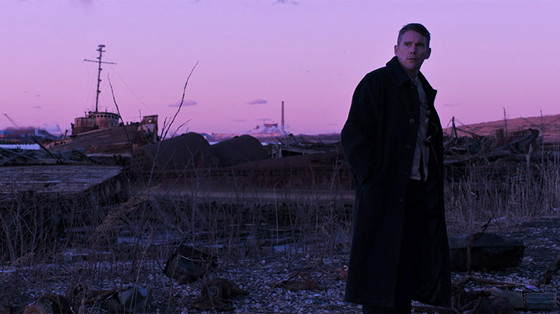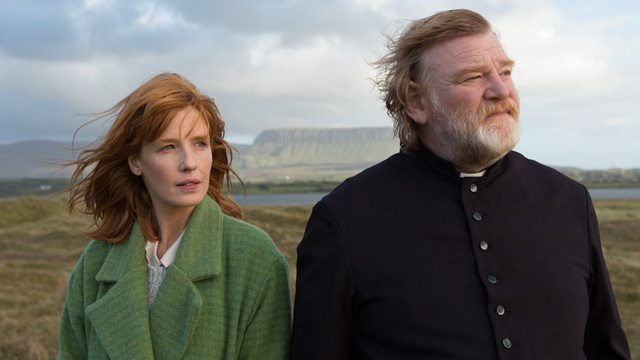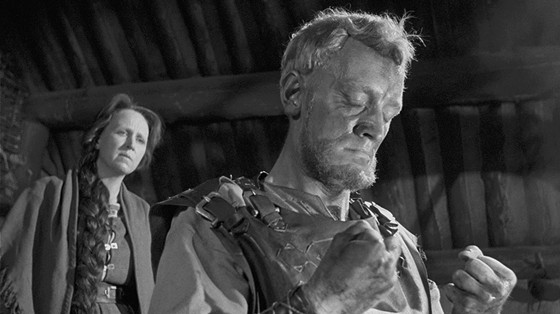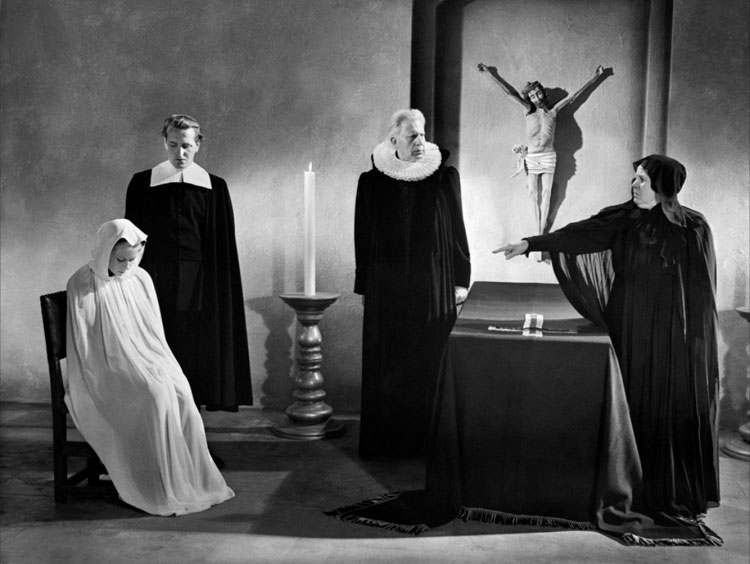6. First Reformed (2017) – Paul Schrader

First Reformed is haunted by the ghosts of so many classic films dealing with faith and spirituality that its importance as a modern statement on these subjects could be missed. Paul Schrader, who also wrote the script for Taxi Driver, directed First Reformed; both central characters struggle with a similar despair which finds unhealthy channels in their actions. The many references in this film to Ingmar Bergman’s Winter Light and Robert Bresson’s Diary of a Country Priest are easily apparent and clearly intended.
The priest in Schrader’s film is numbing his physical and emotional pain with alcohol, and has turned to the priesthood hoping to find spiritual answers and forgiveness. Through harsh penance and austerity, he continues to seek an elusive peace with God and with himself. But though First Reformed shows great respect for the journey of faith that its protagonist is taking, it also indicates that it may be insufficient to heal his pain.
When he begins to find solace in social activism, his preoccupation transfers from spiritual salvation to social justice so easily that the two seem to be equated in effectiveness. Meanwhile, his personal despair is growing into a threat to his very life from which even faith may fail to rescue him.
7. Monty Python’s Life of Brian (1979) – Terry Jones

Life of Brian is a much discussed and often criticized film whose reputational bark far exceeds its substantive bite. Those who venture behind the curtain of superficial interpretation will find a hilarious and remarkably intelligent film which is far from blasphemous. It is full, however, of subversive little digs at the historical excesses of religion, and at the caricatures that religious zealots sometimes allow themselves to become. Regarding the original Messiah, Life of Brian shows nothing but quiet respect.
The obvious absurdity of elevating Brian, the title character, to the status of Messiah while he wants nothing but to live a quiet life and find true love makes for effective comedy. But the passion with which adoring crowds continue to chase him also captures the desperation with which people will latch onto anyone whom they believe can provide answers to life’s existential questions. The petty divisions which quickly erupt even among groups with the same goals and beliefs act as a withering critique of the cyclical internal fighting which has plagued believers for millenia.
In Brian’s impassioned pleas for his followers to leave him alone and think for themselves, it’s hard not to hear the voice of another 20th century figure declared by some Theosophists to be the new Messiah, and given little choice in the matter. Through satirical exaggeration which nevertheless reflects actual human behavior, Life of Brian gives us an effective reminder about what well-intentioned religion can devolve into.
8. Calvary (2014) – John Michael McDonagh

Calvary is a hard-hitting film which gains much of its power through its examination of modern events and their effect on people of faith. Brendan Gleeson gives an unforgettable performance as Father James, a good priest whose life is threatened through a confessional screen in the film’s very first scene. He is promised a week to set his affairs in order, and then given a guarantee that he will meet his end on the following Sunday.
The man making the threat explicitly states he has been a victim of abuse at the hands of another priest, and that he is choosing Father James as his target precisely because he is a good priest who has not hurt anyone. By taking the life of someone who is innocent, the victim believes his actions will more effectively bring about change. A film like Calvary puts us ill at ease because it has a villain who is also a victim, and therefore easier to sympathize with.
The story’s hero is in fact a good person who is nevertheless associated with others who have done horrible things. The lines of demarcation are thoroughly blurred in Calvary, and its characters are all under the weight of some guilt – either personal or collective. The prospect of a righteous person answering for the sins of others to an executioner who has been deeply wronged is guaranteed to shake the viewer. Calvary is a film that stays with you long after the credits roll.
9. The Virgin Spring (1960) – Ingmar Bergman

The Virgin Spring shares its message through a tale of tragedy and revenge. Adapted from a 13th-century Swedish ballad, this film’s narrative explores the struggle for power between paganism and Christianity while telling a heartrending story. Max von Sydow gives one of his most powerful performances as the father of a murdered child in this classic collaboration with Ingmar Bergman.
Facing a tragic crime which apparently occurred at the bidding of pagan forces, the father is torn between his Christian ideal of forgiveness and his natural instinct for revenge. (The plot points of The Virgin Spring are surely no secret by now, but a spoiler will follow.)
Yielding to the powerful motivation to exact revenge upon his daughter’s killers and bring a sense of justice to his soul, the father calmly goes about his execution of the villains as they sleep in his own home. He immediately asks God for forgiveness and sets about building a church to atone for his sins, but his actions are irreversible.
Though his desire to maintain his religious ideals was strong, his vengeance was what actually satisfied the grief in his heart. Therefore, no clear victor emerges in the contest between paganism and Christianity, and the events have forced an unlikely marriage between the two philosophies for one man.
10. Day of Wrath (1943) – Carl Theodor Dreyer

The legendary director Dreyer was well versed in the subject of faith, and Day of Wrath is one of his most powerful examinations of the subject. It treads the familiar ground of witchcraft accusations and heretic burnings, but provides profound insights into its characters along the way. The film is an adaption of a play, written in 1909, about an actual Norwegian case from the 16th century.
When a local woman is accused of witchcraft by the local pastor, her daughter is forced into marriage with the much older man. But when the young woman falls in love with the pastor’s son, she conveniently falls under suspicion of being a witch herself. Day of Wrath examines the fine lines often drawn between personal devotion and selfish prejudice.
The fact that one can kill another human while believing he or she is doing the will of God speaks to the ease with which these lines can disappear when powerful people do not get their way. The belief in one’s personal holiness can even grow so strong that purely selfish actions are inwardly interpreted as divine mandates. Dreyer gives a clear-eyed presentation of all these conflicting motivations and their devastating effects on the innocent.